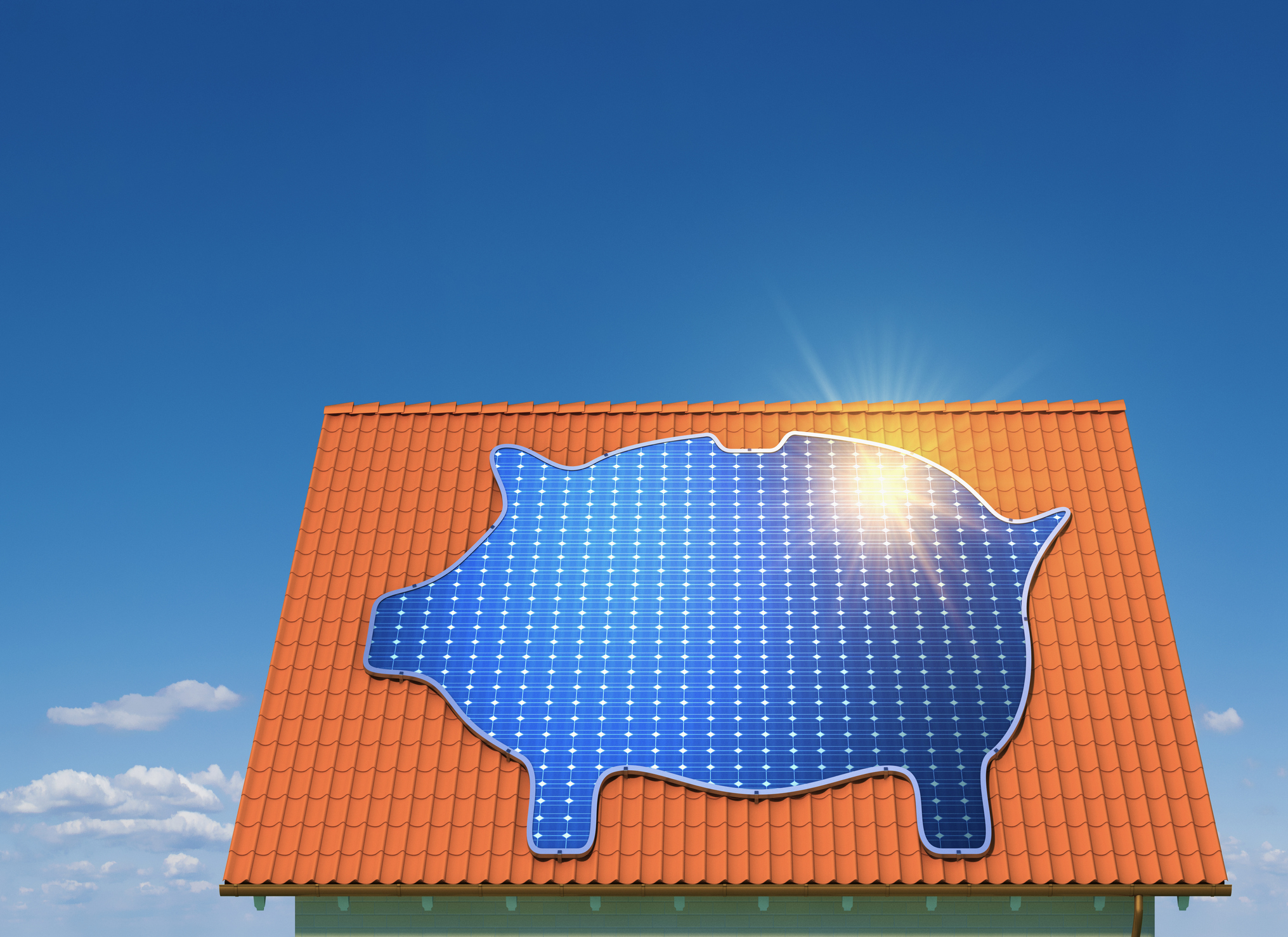Heat Pumps vs Solar Panels: Which Saves You More on Energy Bills?
Debating heat pumps vs solar panels? Whichever one you choose, it just got easier to save on energy bills.

Erin Bendig

Profit and prosper with the best of Kiplinger's advice on investing, taxes, retirement, personal finance and much more. Delivered daily. Enter your email in the box and click Sign Me Up.
You are now subscribed
Your newsletter sign-up was successful
Want to add more newsletters?

Delivered daily
Kiplinger Today
Profit and prosper with the best of Kiplinger's advice on investing, taxes, retirement, personal finance and much more delivered daily. Smart money moves start here.

Sent five days a week
Kiplinger A Step Ahead
Get practical help to make better financial decisions in your everyday life, from spending to savings on top deals.

Delivered daily
Kiplinger Closing Bell
Get today's biggest financial and investing headlines delivered to your inbox every day the U.S. stock market is open.

Sent twice a week
Kiplinger Adviser Intel
Financial pros across the country share best practices and fresh tactics to preserve and grow your wealth.

Delivered weekly
Kiplinger Tax Tips
Trim your federal and state tax bills with practical tax-planning and tax-cutting strategies.

Sent twice a week
Kiplinger Retirement Tips
Your twice-a-week guide to planning and enjoying a financially secure and richly rewarding retirement

Sent bimonthly.
Kiplinger Adviser Angle
Insights for advisers, wealth managers and other financial professionals.

Sent twice a week
Kiplinger Investing Weekly
Your twice-a-week roundup of promising stocks, funds, companies and industries you should consider, ones you should avoid, and why.

Sent weekly for six weeks
Kiplinger Invest for Retirement
Your step-by-step six-part series on how to invest for retirement, from devising a successful strategy to exactly which investments to choose.
Which is best for energy savings? We put heat pumps vs solar panels to the test. Both can improve your home’s energy expenses, reduce your carbon footprint and crucially, save you money on your energy bills.
Heat pumps can be used to both cool and heat your home. They use electricity to extract heat from inside your home and pump it outside in the warmer months. In the colder months, they extract heat from the air and pump it into your home to keep you warm. They produce so much energy that they can dramatically reduce your dependence on your energy supplier and can save you money on your energy bills, despite surging electricity costs.
Meanwhile, solar panels generate electricity that can be used to help power the electrical systems in your home. And since the passage of the Inflation Reduction Act, Americans now have access to generous tax credits that can reduce the cost of these energy-smart home improvements.
From just $107.88 $24.99 for Kiplinger Personal Finance
Become a smarter, better informed investor. Subscribe from just $107.88 $24.99, plus get up to 4 Special Issues

Sign up for Kiplinger’s Free Newsletters
Profit and prosper with the best of expert advice on investing, taxes, retirement, personal finance and more - straight to your e-mail.
Profit and prosper with the best of expert advice - straight to your e-mail.
Below, our colleagues at MoneyWeek put heat pumps vs solar panels in a head-to-head test.
Pros of heat pumps
- Heat pumps emit no carbon dioxide, nitrogen dioxide or particulates. They can help to improve the air quality both inside and outside the home.
- Heat pumps are much more efficient than gas boilers and produce three or four times the energy they use. According to the National Renewable Energy Lab (NREL), 62% to 95% of households (depending upon heat pump efficiency) would see a drop in their energy bills by using a heat pump, and depending on the size of your home, your local climate and which unit you choose, you can save $300 to $1,500 annually, according to the DOE.
- Heat pumps are reliable, require little maintenance and may last 20 years or more before they need replacing.
- The Inflation Reduction Act offers $2,000 tax credits toward the installation of electric or natural gas heat pump water heaters, electric or natural gas heat pumps, and biomass stoves and boilers.
Recently, Wisconsin became the first state to launch the Home Efficiency Rebate (HOMES) program to help households save money on energy-saving home improvements, which includes insulation, air sealing and heat pumps that reduce whole-home energy consumption. Depending on your household income, you could receive a rebate for up to 100% of the costs (on up to $5,000) to purchase and install a heat pump or other energy-efficient home improvements. Many other states are expected to launch similar rebate programs soon. You can use this map to check your state’s progress toward launching its rebates.
For more on federal, state and local heat pump incentives, read our comprehensive article on how heat pumps can help you save on home cooling and heating.
Cons of heat pumps
Heat pumps also have several downsides:
- An air source heat pump costs between $2,000 - $7,000, with installation costing anywhere from $1,000 - $4,000, according to Forbes. Even with the government’s $2,000 tax credit, the system could still cost you a pretty penny upfront, before energy savings come into play over the life of the heat pump.
- Heat pumps use electricity and can therefore be pricey to run. Remember, electricity is three to four times more expensive than gas per unit, so energy bills could potentially increase after getting rid of a boiler. However, according to MIT Technology Review, "heat pumps can reach 300% to 400% efficiency or even higher, meaning they’re putting out three to four times as much energy in the form of heat as they’re using in electricity," reducing overall energy usage in your home.
- Heat pumps do not warm a home as quickly as a gas boiler. Naturally cold homes will especially heat up much more slowly. And according to MIT Technology Review, if the difference in temperature between inside and outside increases, a heat pump will have to work harder to gather heat, so efficiencies drop.
- Heat pumps can be awkward to install in homes with combination boilers, which will need to find space for a hot water cylinder.
- Heat pumps can be noisy due to their fans, although manufacturers are working to make them quieter.
- Some homes do not have a suitable outside space for a pump.
Pros of solar panels
Since 2010, the cost of solar panels has fallen by more than 60%, according to the Solar Energy Industries Association. There are lots of positives to installing solar panels.
- Solar panels could reduce your annual energy bill by $1500 per year, according to SolarReviews.
- Solar panels now pay for themselves within five to fifteen years. The average EnergySage solar shopper breaks even in about eight to nine years.
- Solar power allows you to generate most of your electricity for lights and appliances.
- Solar power can also power an electric car. You’ll need an average of 7-12 solar panels to charge your vehicle, according to EnergySage.
- You can sell electricity back to the grid or an energy supplier. Over 40 states allow for some kind of “net metering,” according to SmartAsset, meaning "households that generate electricity through residential solar projects can receive checks from the power companies for excess energy sent to the grid."
- Solar power systems are easy to fit, even in old homes.
- Innovations mean you no longer have to put up with ugly black glass.
Cons of solar panels
- The cost for a solar panel system on an average-size house in the U.S. ranges from $10,000 to $30,000, costing on average $12,497 after solar tax credits, reports Consumer Affairs.
- The cost of a battery — which you’ll need to use your solar energy at night or when the sun doesn’t shine — will cost somewhere between $12,000 and $20,000, according to Solar Reviews. However, they report that most solar battery installations will earn a federal tax credit of about $4,500.
- Solar power won’t quite cut it when it comes to heating. You can easily generate most of your electricity for lights and appliances, but add heating and it gets tricky. Put simply, thermal panels are limited when the sun isn’t constantly shining, so you need an extra source of hot water to help.
The verdict
Despite both heat pumps and solar panels having hefty installation costs, solar panels will likely save you more money overall. Of course, you can save even more money and carbon by combining solar panels with an electric car, battery or heat pump.
Ultimately, before choosing between a heat pump and solar panels, consider:
- If it’s thermal energy or electricity you want to generate
- How much energy you want to generate
- What uses you want to put it to
- How long you want your renewable energy system to last
- How much you can afford to pay upfront and essentially invest in your home
Related Content
Profit and prosper with the best of Kiplinger's advice on investing, taxes, retirement, personal finance and much more. Delivered daily. Enter your email in the box and click Sign Me Up.

Ben Demers manages digital content and engagement at Kiplinger, informing readers through a range of personal finance articles, e-newsletters, social media, syndicated content, and videos. He is passionate about helping people lead their best lives through sound financial behavior, particularly saving money at home and avoiding scams and identity theft. Ben graduated with an M.P.S. from Georgetown University and a B.A. from Vassar College. He joined Kiplinger in May 2017.
- Erin BendigPersonal Finance Writer
-
 Quiz: Do You Know How to Avoid the "Medigap Trap?"
Quiz: Do You Know How to Avoid the "Medigap Trap?"Quiz Test your basic knowledge of the "Medigap Trap" in our quick quiz.
-
 5 Top Tax-Efficient Mutual Funds for Smarter Investing
5 Top Tax-Efficient Mutual Funds for Smarter InvestingMutual funds are many things, but "tax-friendly" usually isn't one of them. These are the exceptions.
-
 AI Sparks Existential Crisis for Software Stocks
AI Sparks Existential Crisis for Software StocksThe Kiplinger Letter Fears that SaaS subscription software could be rendered obsolete by artificial intelligence make investors jittery.